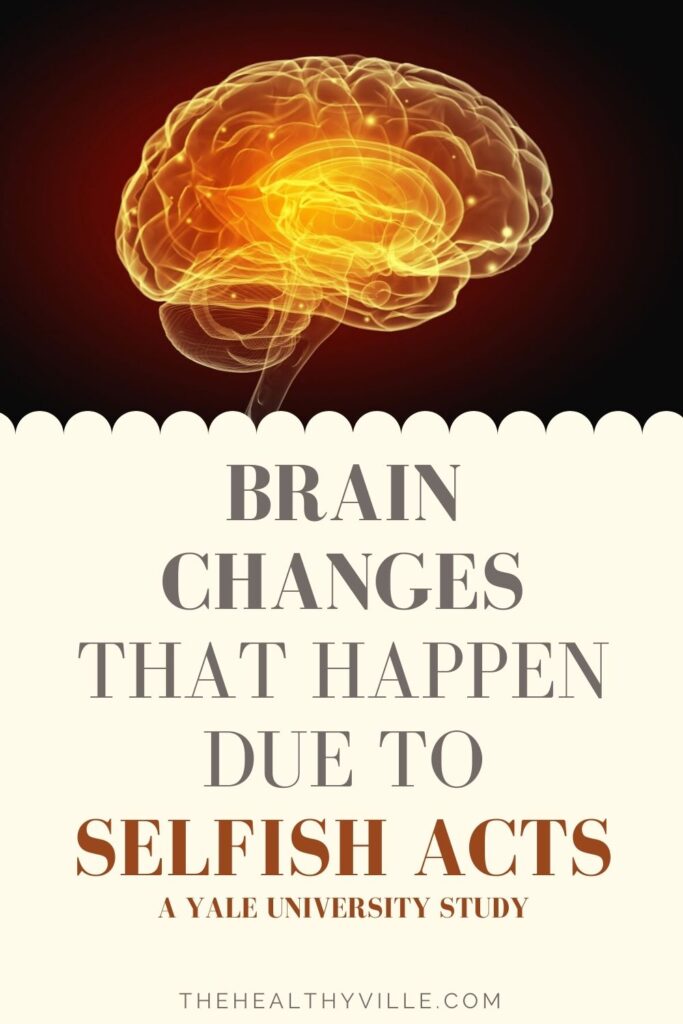Brain changes happen, depending on whether you have selfish of generous behaviours, research from Yale University showed. Find out all about it!
This is how the brain changes with selfish acts
One of the lines of research of neuroscientists has to do with changes in the brain. That is, as a function of behavior. A recent study in this regard indicates that there are modifications in brain functioning. This happens when a person does an act of selfishness or an altruistic one.
Dr. Steve Chang was the lead researcher, a researcher at Yale University. The research is published in the famous journal Nature Neuroscience. The research team was able to verify what changes the brain in terms of functioning. This was both when thinking only of oneself, and when it is shared with others.
The study, which is a pioneer on the subject, was not done with humans but with primates. It is a first phase of research that, anyway, yields interesting data about how the brain changes, depending on social behavior. Let’s see what this interesting research tells us.
Dr. Chang’s research was able to corroborate, in the first instance, that the two brain areas involved in selfish or altruistic behavior are the amygdala and the prefrontal cortex. Both regions, among others, interact with each other, when it comes to social behaviors.
There is already evidence that these two brain areas have to do with social cognition. The researchers, in this case, looked for a way to see how they operate in specific cases that involve selfishness or generosity. Specifically, they wanted to observe how the brain changes when it makes prosocial or antisocial decisions.
In the long term, the objective of the research, which has not yet been concluded, has to do with understanding the mechanisms involved in problems such as autism, psychopathy, etc.
Primate research
To carry out the study, the researchers conducted several experiments with monkeys. They induced the monkeys to be in various situations. They had to choose between drinking a juice or throwing it away, drinking it alone or sharing it. Meanwhile, the scientists monitored their brain for possible changes.
In terms of behavior, the primates showed that they preferred to drink the juice without sharing it with others. However, when the alternative was to throw away the drink, almost everyone chose to share it with others. Meanwhile, neuroscientists were able to verify that there were modifications at the brain level, depending on each decision.
The researchers found that when there was selfish behavior, there was virtually no interaction between the amygdala and the prefrontal cortex. On the other hand, if the behavior was generous, or prosocial, a great synchrony was configured between these two areas of the brain. In the end, just by looking at the patterns of brain activity, the researchers already knew what behavior the monkey was adopting.
More complex behavior
The data from this new study confirm that the brain changes when primates carry out selfish behaviors and generous behaviors. The nature of this modification also proves that altruism, solidarity, and cooperation are more complex and elaborate behaviors than selfish ones, as they involve more complex brain activity as well.
This, in turn, corroborates approaches from psychology. The human being is born selfish and in the beginning this behavior has nothing to do with morality. But, it has to do with the survival instinct. In other words, it is an instinctive pattern of behavior.
With education and intellectual and social development, a person can learn. They can learn to be generous, cooperative and prosocial, if they evolve appropriately. Cooperating is a more complex behavior. It involves the ability to see the consequence of actions in the long term. In this sense, solidarity better guarantees individual and species survival, if viewed in perspective.
A long-term investigation
Research on brain change caused by selfishness and altruism is just a first step in a more ambitious project. They are still to investigate if there are people in whom there’s a limitation in the interaction between the amygdala and the prefrontal cortex due to genetic or other reasons.
Before getting there, what follows in Dr. Chang’s research is to find out if it is possible to manipulate the decisions of monkeys, promoting synchrony between the two brain regions, artificially. Eventually, these findings will go to the human level and could constitute an important advance in treating autism and some psychopathies.
Don’t forget to SHARE how the brain changes with selfish or generous acts with your friends and family on your social networks!

